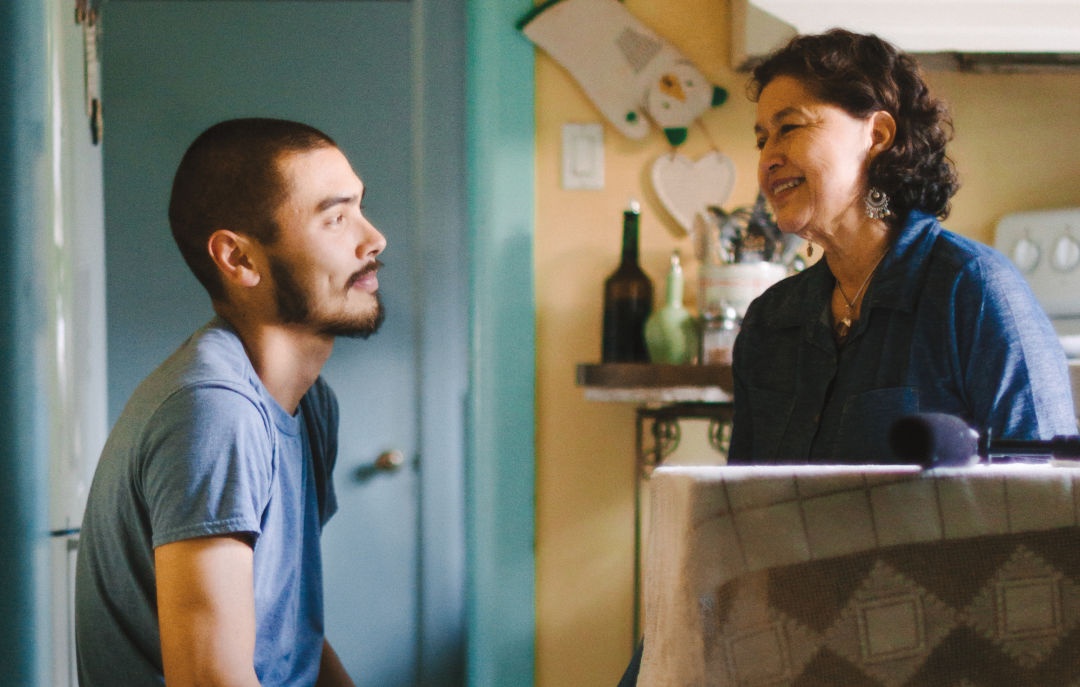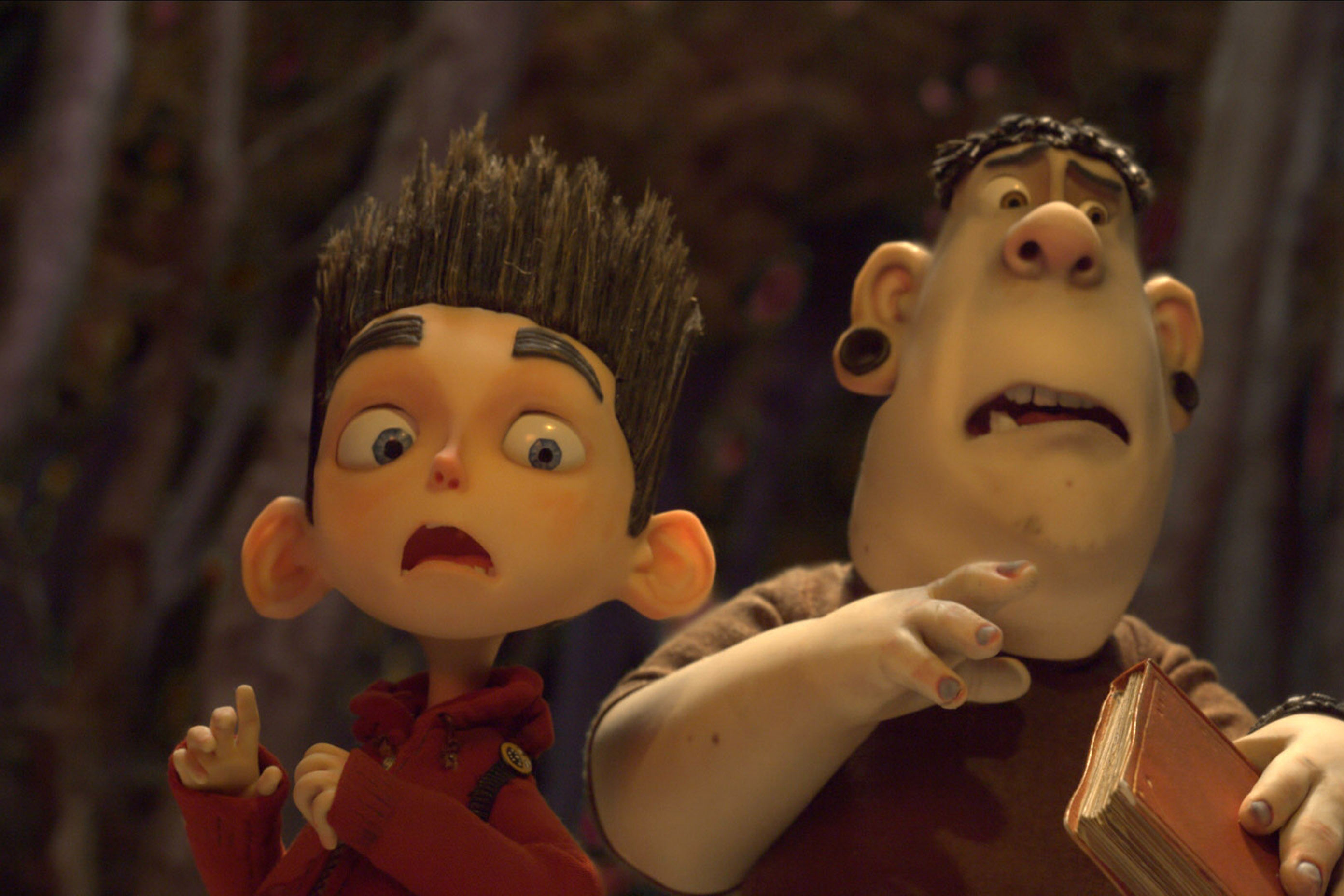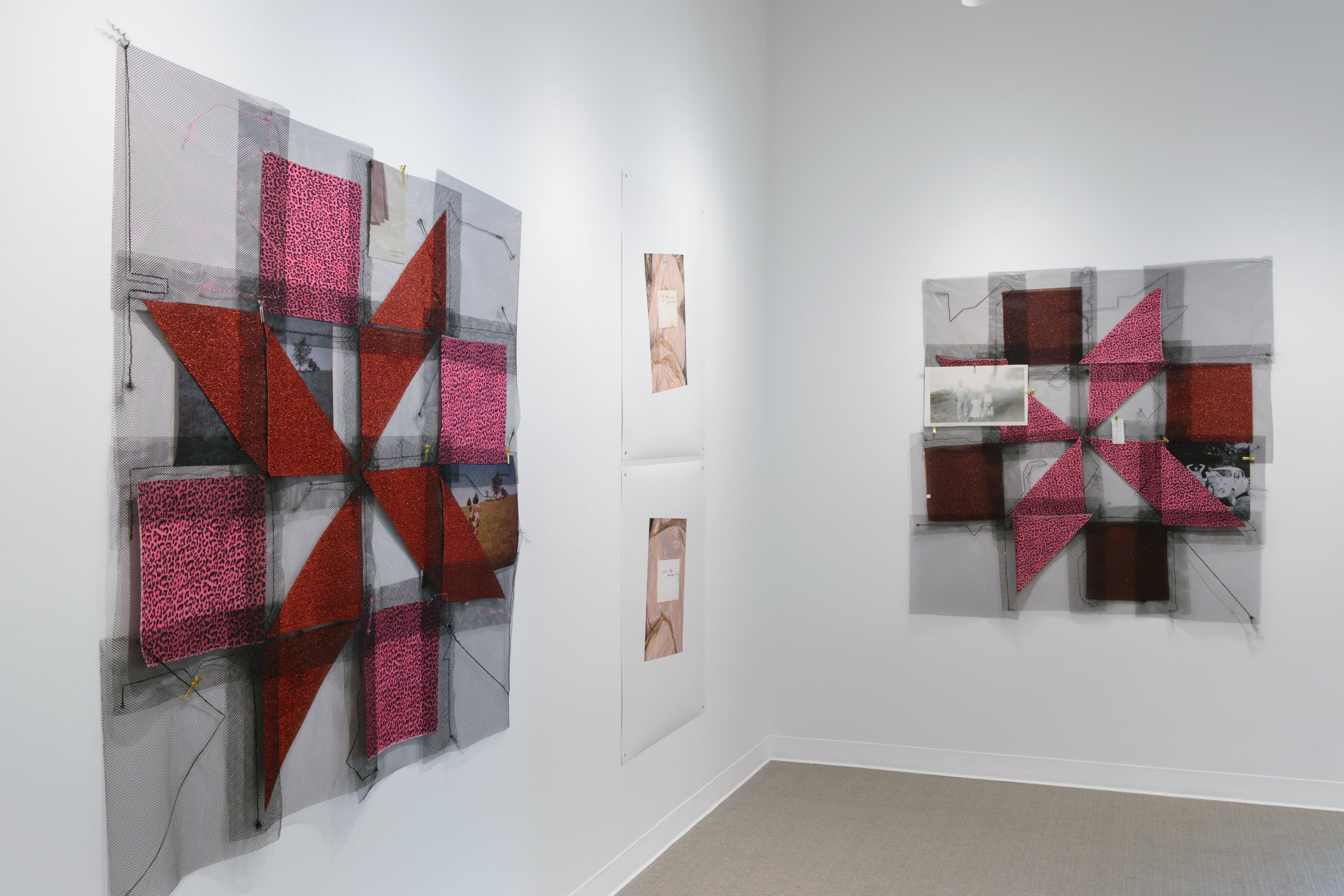Roland Dahwen’s First Feature Film Examines Family Fallout with Intriguing Patience

Roland Dahwen and Alma García on the set of Borrufa.
Image: Courtesy Roland Dahwen
Editor's Note, April 2: This piece was written for the April issue of Portland Monthly several weeks before coronavirus hit Oregon. Borrufa premiered, as scheduled, March 7 at the Whistell Auditorium. Its repeat screening on March 12 was canceled along with the rest of the Portland International Film Festival.
If you Google “borrufa translation,” you get a clean answer: borrufa, a Catalan word, means blur in English.
Even if that were strictly true (spoiler: it’s not), it would be a fitting title for Roland Dahwen’s enigmatic first feature. Borrufa, which premiered last month at the Portland International Film Festival, centers on Leonora (Alma García), a Guatemalan woman who discovers her husband, Ireneo (Antonio Luna), has a second family. He repents, the family fractures, and Dahwen hardly shows us any of it.
“I’m not that interested in plot,” he admits, smiling a bit. “There’s only a few, anyway.”
Borrufa’s subject matter, inspired by a pair of personal stories Dahwen is reluctant to discuss, could easily lend itself to lurid melodrama. Instead, it’s oblique, withholding, and dreamlike—a blur. Shot in long, static takes on Super 16 mm film, the images are bright but distant. Whole multi-minute scenes pass without a word of dialogue, and when they do speak, characters are never quite able to say what needs saying.
Raised in Northern California, Dahwen came to Oregon to study literature at Reed. His favorite literary works—like Sophocles’s Oedipus—focus more on fallout than conflict, and Borrufa follows suit. It picks up after the worst is over and gently asks what’s next.
“To me, the more heartbreaking moments are the ones where people are doing their daily lives while something very tumultuous is happening inside of them,” Dahwen says. In one especially memorable sequence, a character sweeps their stoop in silence before projectile-vomiting with guilt.
When he showed up in Portland, Dahwen didn’t have more than a passing interest in film: it was something he liked, not something he did. That changed after he visited the Canary Islands at 20, spurred by a passage in a coffee table book about untranslatable words.
“There was this brief paragraph that said there’s this language on the Canary Islands where people communicate by whistling," he remembers. "I had no idea that a language like this could exist in our lifetime, and it seemed so implausible that I wanted to go.”
He booked a trip, picked up a janky handheld camera from the mall, and cobbled together his first film, a short documentary about el silbo gomero—a whistling technique Spanish residents on the island of La Gomera use to communicate across large distances. By the time he graduated from Reed, Dahwen had landed a job making and distributing documentaries at Portland’s Graham Street Productions, many of them about immigration.
Borrufa isn’t about immigration, exactly, but the subject looms. One character uses a public name (Angel) to obscure his legal name (Heldáy) because he’s undocumented. (He’s played by Portland illustrator Heldáy de la Cruz, who co-leads a collective of undocumented artists called We the Dreamers.)
“People wouldn’t catch it necessarily, or they’d assume [he] had two different names,” Dahwen says. “I was very interested in making a film about immigration ... where the characters weren’t defined by their immigration status and they weren’t defined by legislation.”
He handled the rest of the production with similar austerity. Aesthetic draw aside, Dahwen used 16 mm film because it was expensive and only allowed one or two takes. He deliberately cast nonactors: Alma García, who plays Leonora, is a good friend’s mother. He met Antonio Luna on another project and persuaded him to play Ireneo over ceviche. The budget was mostly stitched together from Regional Arts & Culture Council grants and the Oregon Media Arts Fellowship (which Dahwen netted in 2018), so there are precious few locations: the actors’ houses, Sauvie Island, a waiting room.
Seven years ago, Dahwen wrote the word borrufa on a scrap of paper after hearing a friend explain the etymology: it describes a freak weather incident on the section of the French-Spanish border that skirts the Pyrenees Mountains. Sometimes, when the wind is strong enough, it carries snowflakes from France over the mountains into temperate Spain. The direct English translation—more direct than blur—is snow falling from a cloudless sky. Dahwen likes it as a metaphor, one he
declines to explain.
After seven years and an auspicious premiere, what’s the most surprising thing about Borrufa?
Dahwen grins.
“That it exists at all.”




